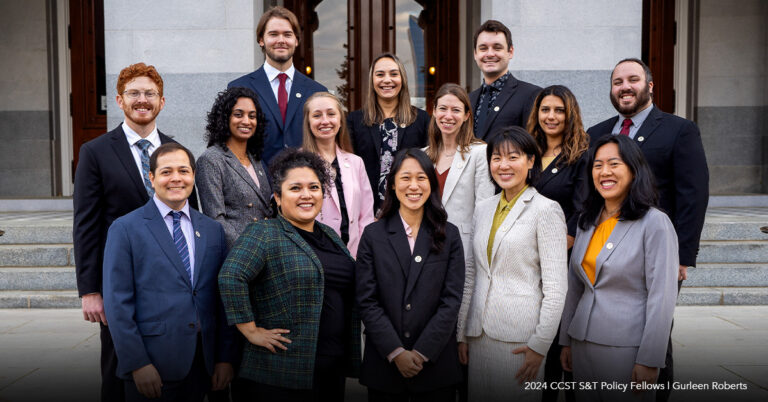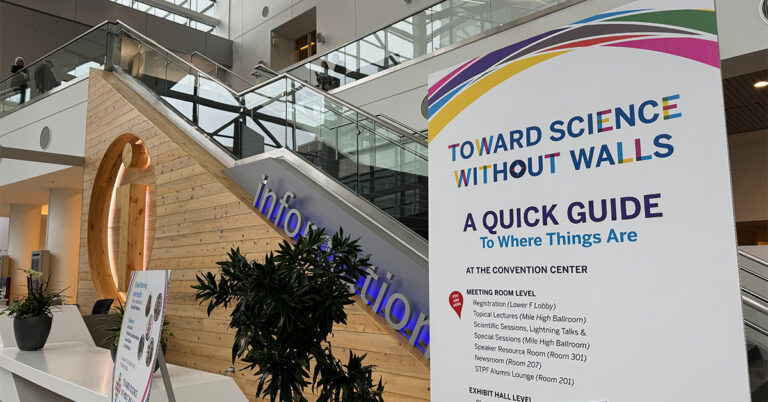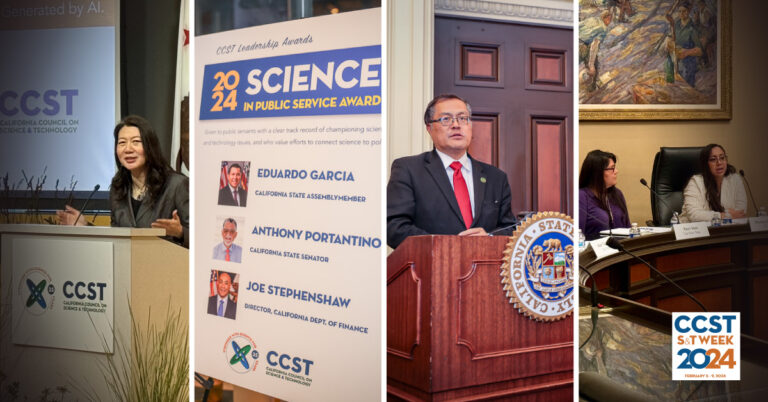Update: Applications for the CCST Science & Technology Policy Fellowship Have Closed
Fresno State Water and Energy Technology Incubator Gateway to Blue Tech Valley
December 6, 2013 | CCST Newsroom | Contact: M. Daniel DeCillis
A collaborative high-tech business incubator in Fresno is opening the door for water and energy technology startups in the San Joaquin Valley, working to build a “Blue Tech” community of water-related companies with a national presence similar to Silicon Valley.

The Water, Energy and Technology (WET) Center, located at Fresno State University, includes resources such as the testing facilities of the International Center for Water Technology and is designed to help create and sustain an ‘ecosystem’ that will allow water and energy technology startups to flourish.
“This is the front door to the Blue Tech Valley,” said Helle Petersen, development director of the WET center. “The region has a set of unique resources and physical assets for inventors, entrepreneurs and start-ups, creating a suitable environment for developing and commercializing innovative water and energy technology. The WET Center is a focal point allowing researchers and industry to connect.”
The university has for years provided facilities to quantify and field-test water technologies developed by industry and researchers both in California and elsewhere. The WET Center, which opened in 2006, seeks to provide opportunities for this research to reach the market. The center is housed in the Jordan College of Agricultural Sciences and Technology, where much of Fresno State’s water research and academic programs are located. The WET Center is a cornerstone in fully realizing Blue Tech Valley led by Fresno State, providing hands-on training and fostering connections between faculty, students, research, and partnerships with agencies and industry. The plan targets sectors aligned with the WET Center: water technology, clean/renewable energy, air quality solutions and agriculture technology with a goal of making the region a world center of water and energy technology research, innovation and application.
“The idea is to take concepts to commercialization,” said , director of the Center for Irrigation Technology at Fresno State and water policy advisor to the California State University system. “We have sometimes seen entrepreneurs approach us with interesting technologies which, once evaluated, are never seen again. The question is why aren’t these technologies succeeding? We want to give them the tools to succeed.”
The dual focus on water and energy arose from the increasing recognition of the interconnectivity between the two areas – sometimes referred to as the “Water-Energy Nexus”.
“We realized in the early 2000s that every time we conserved water, there was embedded energy as well,” said Zoldoske. “Water systems are often energy-intensive, and energy systems often use a great deal of water. It makes much more sense to consider the technologies holistically.”
High-tech business incubators are not uncommon in regions around the country seeking to build communities with a strong high-tech base. The WET Center combines a focus on technologies addressing issues of particular importance to California, particularly in the arid San Joaquin Valley, with support from the regional Workforce Investment Board (WIB) – an unusual combination of resources.
“The WIB’s involvement is a recognition that promoting business growth is a good way to promote jobs growth,” said Zoldoske.
Water and energy technologies are a major priority for California, which is seeking to build plans to address critical needs in both areas over the coming decades. The California Council on Science and Technology (CCST) completed a two-year study of energy technologies for the State in 2012, California’s Energy Future, and is currently engaged in a similar analysis of energy related policies; CCST is also currently completing an overview of innovative water related technologies, scheduled for completion in early 2014.
Although the Blue Tech Valley has not yet reached the stature of Silicon Valley, it has become a significant focal point for water and energy startups; over 200 companies participate in the Water Cluster and Clean Energy Cluster, which provide market opportunities in the areas of industrial, agricultural, municipal, and residential sectors. Last year, the Environmental Protection Agency recognized the WET Center with the Pacific Southwest Region’s Efficient Water Infrastructure Award.
“We have a unique set of resources,” said Petersen. “We’re open for business and ready to help entrepreneurs.”






